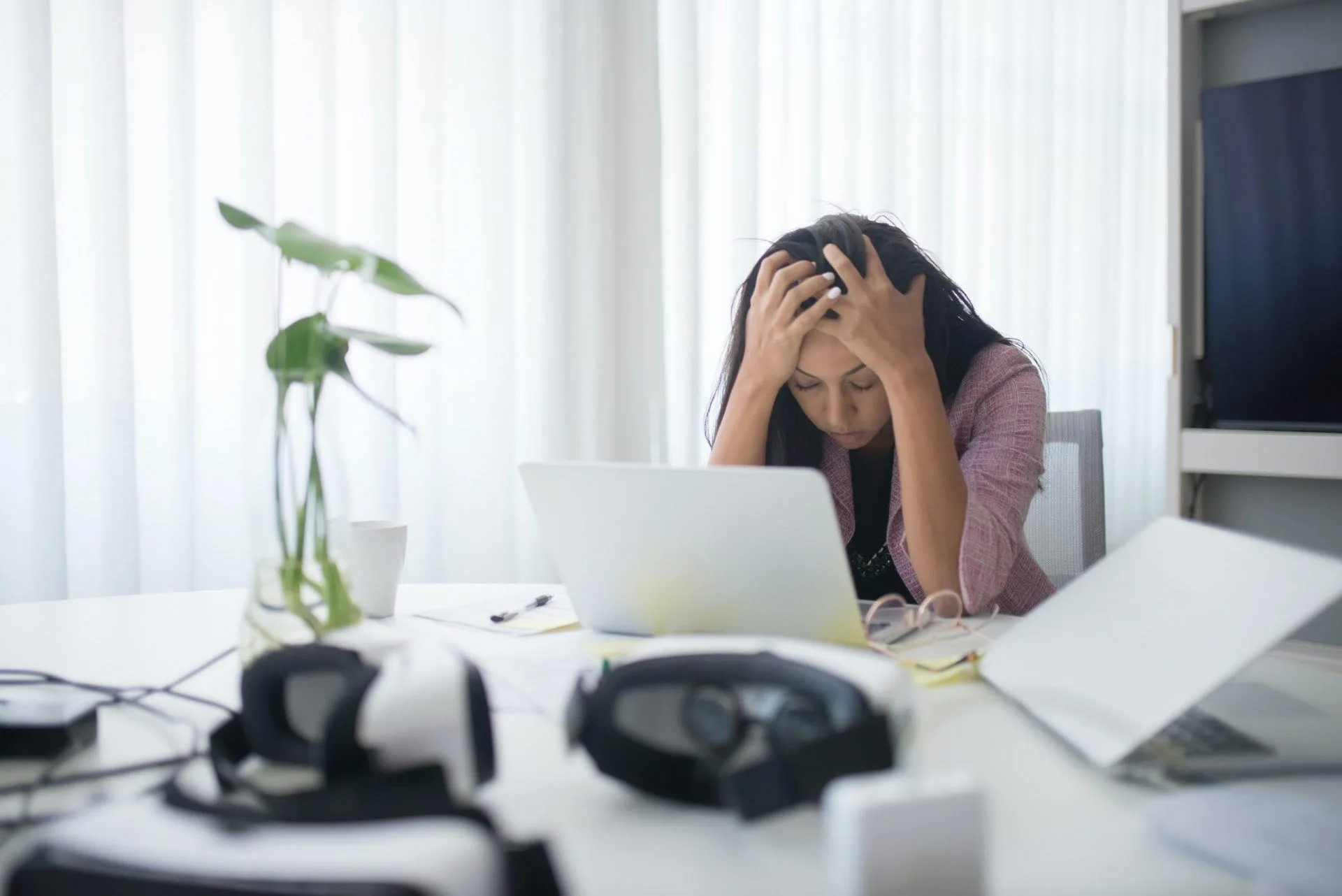With how busy our lives have become and with work-related expectations a part of adult life, work-related stress is something a lot of people struggle with. Some work stress is normal but if you work in a highly stressful job, you might want to keep this stress in check. Stress can have serious mental, psychological, emotional, and physical ramifications if you do not find a way to deal with it. Work stress might be inevitable, but there are self-care steps you can take to ensure it does not end up weighing you down.
Self-Care Tips For People With Stressful Jobs
Sleep
There are certain circles where sleeping for many hours is frowned upon. In these styles of environment, sleeping for fewer hours is encouraged because some people think they can use this extra time to do more work or hit a new goal. This is the wrong way of thinking because getting inadequate sleep can have serious effects on your health and well-being.
First, sleeping for fewer than 7-8 hours can make you feel tired the following day. This happens because you did not give your body enough time to recharge. When you feel tired, you feel like you cannot be productive enough and this induces stress. Many people then opt for a cup of coffee to improve their productivity, which ends up making them sleepless, and the cycle starts all over again.
Second, many people get enough hours of sleep, but it is of poor quality. This happens when you do not sleep well enough to get 3-4 hours of REM sleep. REM sleep is a part of your sleep cycle where your brain recharges and the body relaxes.
There are a few things you can do to rectify this, including ensuring your bedroom is comfortable enough (dark, the right temperature, etc.). You should also get a good mattress that can adequately support you while you sleep and reduce noise in the bedroom. Establishing a sleep pattern where you go to bed and wake up around the same time every day can also help.
Take Time To Recharge
Many people forget they need to take time out of their day to recharge. Recharging looks different for everyone, but the main point is that you should take a few minutes every day to do something vastly different from what you normally do. If you work long hours, you could take some personal time to do something different.
There are lots of things to do during your free time, and they will depend on your preferences. Some people like consuming information during their downtime and thus listening to a podcast can be a great way to recharge. Watching funny videos has also been shown to decrease stress as doing so releases endorphins which improve your mood.
If you have a few hours to spare, you could watch a movie. It does not have to be an involved movie because the aim of doing this is to get your mind into a different space, even if it is for a few minutes.
Leave Work At Work

Photo by cottonbro from Pexels
Many people have strict deadlines and an expected level of productivity and output. Because of this, many people take their work home so they can finish it there. Some people keep work-related communications on. If you have a stressful job, doing either of these things will be detrimental to your mental and physical health.
You will always be thinking about work, and you will not have enough time to recharge, do the things you love, or spend time with your family. Start by coming up with some time management strategies that will help you get everything you need to be done at work. Doing so ensures you do not carry your work, and thus the stress of it, home.
A strategy that works for a lot of people is coming up with a weekly or daily priority list. These are the things you need to complete weekly or daily. You can then rank these tasks according to their importance and aim to complete as much as you can at the end of the day or week. You can also set aside time blocks to concentrate fully on work. Doing so will help you complete more tasks. If you do set these time blocks, try as much as you can to not work outside them.
Communication and stress triggers
Another thing you can do is turn off work-related communications. Some bosses want to get in touch with you during your time off. Apart from emergencies, it should be very clear that doing so will affect your productivity as you will always be stressed about work.
Avoid these stressful triggers by turning your phone off and turning off email notifications. You can take an extra hour in the morning or when eating breakfast to check all the calls, messages, and emails that came in during the night and deal with them at this time before heading into the office.
Play Video Games
Video games are all around us, but many people link them to negative consequences such as increased aggression. Research has since shown this is not true and that there are actual benefits to playing video games. One of these benefits is stress relief. One of the ways in which video games relieve stress is by acting as a meditation medium.
Casual games put your mind on autopilot, helping players focus on the present rather than everything else going on around them. This “flow” – total immersion in a game – puts players’ minds in a state similar to one achieved during meditation.
Second, games give you small, achievable goals to hit. Many people are overwhelmed in their jobs because they feel like there are some goals or milestones they can’t hit. Games give players attainable goals so that they feel accomplished and satisfied.
Modern games come with social and multiplayer functionality that enables players to engage in gameplay with other players. We are social creatures, with a fundamental need to be connected to other people. Modern games allow these interactions to happen, which has been shown to relieve stress.
Deal With Negative Thoughts
Stress can skew the way we see and experience things. Worry and chronic stress will often lead to making conclusions based on negative thoughts. For example, you might think someone no longer likes you because they did not greet you in the morning. You might then spiral onwards trying to find out what you did to them for them to not like you anymore. These negative thoughts can keep going until they overwhelm you.
One great self-care tip if you have worry and work-related stress is to confront your negative thoughts. Recognize these negative thoughts and then question where they are coming from. Ask yourself why you have them and what effects they are having on your daily life. Such examinations should help you deal with these negative thoughts and reduce your stress somewhat.
Learn Relaxation and Meditation
In many cases, our minds race when we are stressed. We end up thinking of too many things at once and get overwhelmed by it all. This can help in a stressful job where there are high expectations in terms of performance and output. Slowing down, being present in and conscious about your surroundings, and learning to relax can help reduce work-related stress. Breathing exercises, meditation, and mindfulness have all been shown to be very effective against work-related stress.
If you have never done this before, start with a few minutes of focus, relaxation, and mindfulness every day. You can also practice these techniques during other relaxing activities such as walks. You can then increase the time you take for these techniques until you can go for an hour fully present in your surroundings. If you struggle to get to an hour, use a meditation app. These apps can be used anywhere, whether at home, during your commute, or even at work, to lower your anxiety.
Dial Down Perfectionism
So many people are obsessed with getting things just right. While being competent and paying attention to detail are crucial, you still need to know when to take a step back if you find yourself doing too much. Competency and attention to detail are great, but obsession is not. Another effect of obsession and perfectionism is that they can lead to burnout. If you are already stressed about your performance at work, which leads to perfectionism, you might also be stressed about your output, leading to further stress.
Go On Vacation
There is a good reason why most jobs have vacation days. Going on vacation allows you to switch everything off and take time to relax and unwind away from the stresses of the office. Remember to turn all work-related communications off and take someone you like or love with you. They will help you see the positives of taking a vacation and help you unwind further.
It is not necessary to take a trip across the world, although that is always an option. You can always check into a hotel for a week or two to enjoy the pool and the sun. You can also make the most out of a staycation right in your home.
Seek Help
There are two ways to seek help when you work a stressful job: talking to a support network and talking to a therapist. Keeping in touch with family and friends who form your support network can help you cope with some very stressful situations. You can also ask for help with things like taking care of the kids or watching the house so you can take a few hours to yourself.
There is a common misconception that you need to have a mental health condition to see a therapist. Being overwhelmed and seeing no way out is a great reason to talk to a qualified professional. A therapist can also help you identify the source of your stress, find ways to cope, improve your confidence and esteem so you are not too stressed about your performance, and help you navigate work-related stress.
End note
Everyone experiences some level of work-related stress. The most important thing is identifying when stress is creeping up and finding some healthy ways to deal with the stress. The self-care tips discussed above are a great place to start but never shy away from seeking help and taking some time to yourself if you ever need to.



![women [longevity live]](https://longevitylive.com/wp-content/uploads/2020/01/photo-of-women-walking-down-the-street-1116984-100x100.jpg)










